Radegunde was born in Thuringia, the fertile area located between the Rhine and Elbe rivers in modern-day Germany. Born into a noble family (her father was one of the three kings of Thuringia), she found herself caught up in the bloody and unpredictable acts of war and treason. While just a small girl, her uncle killed her father, ceasing control of the region. Not long after, Clothaire, the king of the Franks, conquered the area in a bloody invasion, killing the members of the royal family, but keeping Radegunde and her brother alive. She was to become his fourth wife, and legitimize his claim to the region.
Radegunde was opposed to marriage, as she preferred to maintain her virginity in pledge to the Lord. Given no choice but to marry the king, she did as instructed (at age 22), but refused intimacy and bore him no children. Rather, she led an austere, pious, and devout life, practicing mortifications and penance, and spending her days in prayer and contemplation. The people of Thuringia looked upon her as a holy nun, rather than a worldly queen. In return, Radegunde founded hospitals, hospices, and charitable foundations to aid the poor, sick, homeless, and hungry.
After she had lived in the court of Clothaire for 10 years, he had her brother murdered, as he might grow to challenge the king’s rule. Radegunde fled the court in fear and disgust, and took sanctuary at a church in Noyon, where she eventually became ordained a deacon. She then fled the regions controlled by her irate husband, settling in Poitiers. Clothaire was not to be dissuaded, and attempted several times to recapture his wife, but she now was protected by the Church, and following a request from the Bishop of Paris, Clothaire gave up his efforts and begged the queen’s pardon.
For her part, Radegunde used her time in exile to serve the Lord. She founded the Convent of Our Lady of Poitiers, a cloistered convent which prevented the nuns from leaving the convent following their holy orders. The rule of the convent further required that the cloistered sisters be able to read and write, and that they devote several hours of the day to reading the scriptures and copying manuscripts, as well as to such traditionally female tasks as weaving and needlework. The community grew to nearly two hundred sisters, many of which came from the noble classes. Not long afterwards, a monastery for monks, abiding by a similar rule, was established.
From the letter Radegunde wrote and sent to her local bishops, regarding her construction of the convent and the order which the nuns and monks would follows. She also made several requests to ensure the longevity of the community following her death:
“Some time ago, when I found myself freed from earthly cares, with Divine Providence and with God's grace to inspire me, I turned of my own volition, under Christ's guidance, to the religious life. I asked myself, with all the ardor of which I am capable, how I could best forward the cause of other women, and how, if our Lord so willed, my own personal desires might be of advantage to my sisters.
Here in the town of Poitiers I founded a convent for nuns.... For the community which, with Christ to help me, I had myself assembled, I accepted the Rule in accordance with which Saint Caesaria had lived.... I appointed as Mother Superior the Lady Agnes, who became like a sister to me, and whom I have loved and brought up as if she were my daughter from her childhood onwards.... The other nuns and I followed the example of the Apostles in making over to her by deed whatever earthly property we possessed at the moment we entered the nunnery....
However, since the affairs of human beings are unpredictable, and because our times and our circumstances are always changing, for the world is running to its end and some people now prefer to follow their own desires rather than the dictates of God, while I am still alive, and in full devotion, in Christ's name and with God to guide me, I send to you, apostolic fathers, this document in which I have set out all my plans.
I conjure you, in the name of the Father, the Son and the Holy Ghost, and by the Day of Judgment, just as if I stood before you, to ensure that no tyrant may stand in my way, but that the rightful king may crown my wishes.
If perchance after my death any person whatsoever, either the bishop of this city, or some representative of the king, or any other individual, should attempt, in a spirit of malevolence or by some legal subterfuge, to disturb the community, or to break the Rule, or to appoint any Mother Superior other than Agnes...;
---or if the community should rise in revolt, which is surely impossible, and wish to make a change;
---or if any person, possible even the bishop of the diocese, should wish to claim, by some newfangled privilege, jurisdiction of any sort over the nunnery, or over the property of the nunnery, beyond that which earlier bishops, or anyone else, have exercised during my lifetime;
---or if any nun shall wish to break the Rule and go out into the world;
---or if any prince, or bishop, or person in power, or even individuals from among the nuns themselves, shall attempt with sacrilegious intent to diminish or to appropriate to his or her own personal possession any part or parcel of the property which our most noble Lothar and the most glorious kings his sons have bestowed upon me...,
may that person incur the wrath of God and that of your holiness and of all those who succeed you, and may all such persons be shut off from your grace as robbers and despoilers of the poor....
You, too, saintly Bishop, and those who come after you, whom I hasten to appoint as my patrons in God's cause, if any be found who shall try to act contrary to these my dispositions, which God forbid, do not be slow to make your appeal to the king who at that time shall rule over this place, or to the city of Poitiers, on behalf of this institution which is commended to your care before the Lord; and do not shrink from the vital labor of pursuing and defending the ends of justice: for only thus will you repel and confute the Enemy of God.
No Catholic king shall brook in any wise such infamy in his time, nor shall they permit to be torn down what has been builded up, by God's will and by my own intent and by the wishes of the several kings....
Just as the Apostle John fulfilled our Lord's request, so may you fulfill all that which, humble and unworthy though I be, I commend to you, the elders of my Church, my masters and my apostolic fathers. If you keep the trust which I hand on to you, you will be worthy sharers of the example set by Him whose apostolic mandates you perform.”
Once her holy community was established, Saint Radegunde soon began to petition the Byzantine emperor for relics from the Holy Land to sanctify the community. The first petition she sent was for a relic of the Cappadocian martyr, Saint Mamas of Caesarea. The Patriarch of Jerusalem eventually authorized the transfer of the little finger of the saint’s right hand from Jerusalem to Poitiers. The second petition was for a fragment of the cross on which Christ was crucified. In response, the emperor sent not only a large piece of wood from the cross, but also some gospel books studded with gold and gems.
Following the acquisition of these relics, Radegunde had the convent renamed the Abbey of the Holy Cross, and it became the destination of pilgrimages.
Once she was content with the organization and operations of the community, Saint Radegunde spent her remaining days walled in a cell, where she prayed and meditated in constancy. Upon her death, her funeral was conducted by her friend, Saint Gregory of Tours. As the sisters of the community were forbidden to set foot outside the convent, they stood upon its walls, crying in sadness, as Radegunde’s body passed beneath them. After her death, Radegunde’s face is reported to have shone "with a brightness surpassing the beauty of lilies and roses." Numerous miracles have been reported at her intercession.
Saint Radegunde’s life was one of hardship, exile, and difficulty. Through these difficult times, she persevered in her commitment to the Lord, charitable service to those in need, and established a community dedicated to praise and contemplation of the mysteries of the faith. A long and suffering queen, she has been recognized as one of the leading female intellectuals of the Dark Ages. We pray today for the same perseverance and hearts of service as modeled for us by saint Radegunde.
Prayer to obtain Final Perseverance
Eternal Father, I humbly adore Thee, and thank Thee for having created me, and for having redeemed me through Jesus Christ. I thank Thee most sincerely for having made me a Christian, by giving me the true faith, and by adopting me as Thy son, in the sacrament of baptism. I thank Thee for having, after the numberless sins I had committed, waited for my repentance, and for having pardoned (as I humbly hope) all the offences which I have offered to Thee, and for which I am now sincerely sorry, because they have been displeasing to Thee, who art infinite goodness. I thank Thee for having preserved me from so many relapses, of which I would have been guilty if Thou hadst not protected me. But my enemies still continue, and will continue till death, to combat against me, and to endeavor to make me their slave. If Thou dost not constantly guard and succor me with thy aid, I, a miserable creature, shall return to sin, and shall certainly lose Thy grace. I beseech Thee, then, for the love of Jesus Christ, to grant me holy perseverance unto death. Jesus, Thy Son, has promised that Thou wilt grant whatsoever we ask in his name. Through the merits, then, of Jesus Christ, I beg, for myself and for all the just, the grace never again to be separated from Thy love, but to love Thee forever, in time and eternity. Mary, Mother of God, pray to Jesus for me.
Year 2: Day 225 of 365
Prayer Intentions: Perseverance; Hearts of service.
Requested Intentions: For personal family intentions, for the sick, poor, hungry, and homeless (G); Financial security and peace (J); Grace, peace, and obedience to the will of God in a marriage (H); Successful and blessed marriage for sin, freedom from anxiety for husband, spiritual contentedness for family (N); Employment and health for a husband (B); Recovery and health of a mother (J); For a family to grow closer to the Church, salvation for all children (D); Successful employment (L); Successful employment (S); Renewal of faith life (A); Support for an intended marriage, health for friend and aunt (J); Mental health assistance for son (G); Freedom from illness (S); Successful employment (C); Financial assistance and employment (B); For a family’s intentions (T); Successful examination results (B); Healing of a friend with cancer, for all those who help others (B); Healing and love (L); Grace and healing (V); Healing of a heart, consecration of a marriage (M); Health of a family, intentions of apostolate (H); For repentance (J); For a family in trouble (R); Healing, successful relationships for son, financial success (J); Success of a company (L); For a religious society (J); Healing of a husband, strength as a faithful caregiver (D); Healing of a son (T); Financial security, Healing and guidance (M); Healing of a heart and relationship (V); Employment for daughter (J); For a marriage that glorifies the Lord (K); Resolution of family situation, parents’ health (A); Positive results (C); For a son’s employment, faith, and relationships (S).

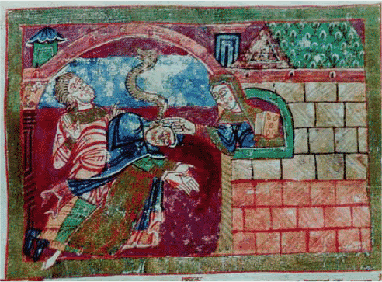
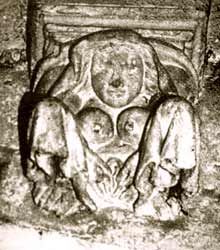


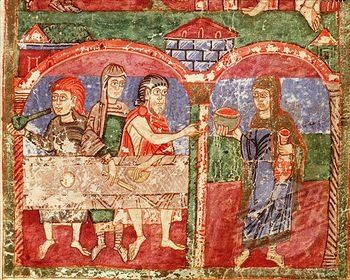
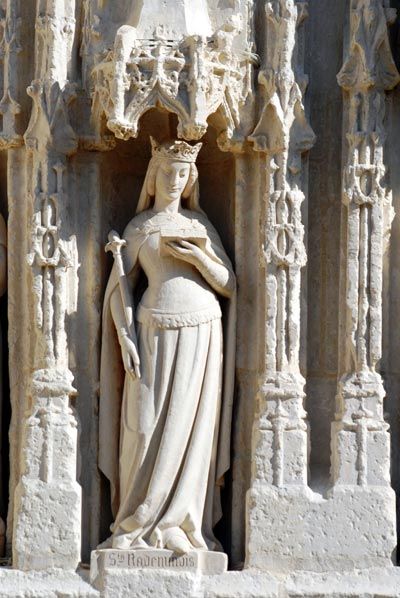

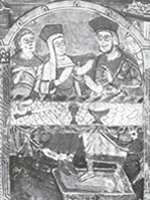
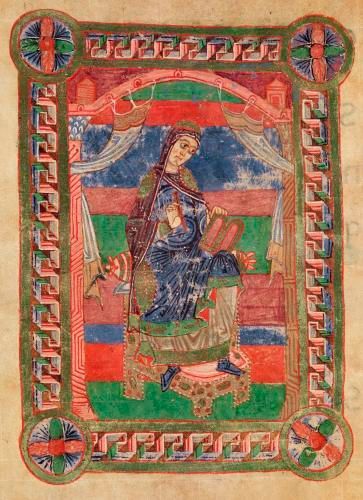

No comments:
Post a Comment
Thanks for leaving a comment. If you wish to submit a prayer request, however, please do so above, using the "Contact" tab.